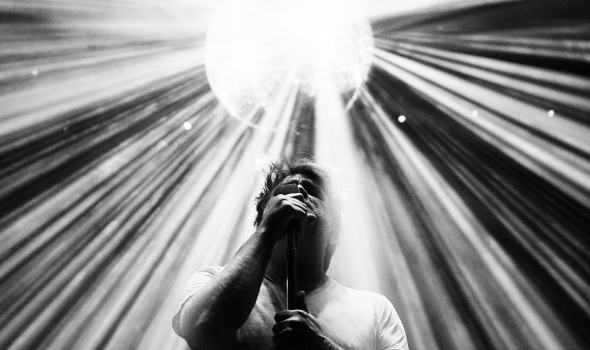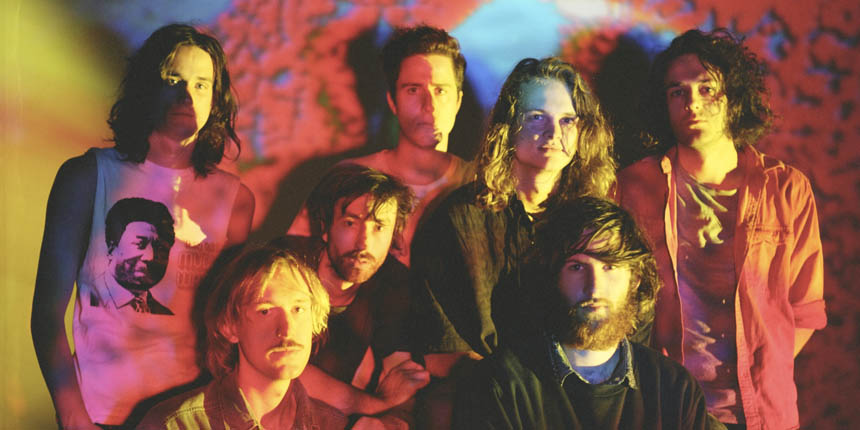Or maybe we just need to cut it out with the censure in the first place. Let musicians be and not get hung up about the legacy or discolouring the past. Artists, like us all, need to pay taxes and make a living in this sky-reaching, capitalist money drove of a civilisation.
On top of that, who are we to question their reasons for break-up and return? It’s often personal, and that certainly doesn’t need a spotlight – if you butted heads with a friend, would you like it if the whole world said “fuck that” to you mending the fissures and reuniting to do what you love? Yeah, that’s what I thought.
Needless to say, the music isn’t being tarnished either, it’s still there in its original form and a reunion is just an opportunity to tickle those dormant fancies.
The deepest criticisms of any band reunion is the ‘cash-grab’ furore. Yeah ok, when The Sex Pistols resurfaced in 1996, they weren’t firing on all cylinders and failed to clock three 20’s on their Filthy Lucre dartboard. Johnny Rotten admitted he, Steve Jones, Paul Cook and Glenn Matlock still hated each other at the time and were back at it for money. Nevertheless, their shows weren’t half bad.
During their 18-year separation, the band-members weren’t smoking cigars and sipping Negroni by the pool, they were out their honing their skills. Matlock shared his time between eight projects between 1977 and 1996. Jones had his hand in at least 15 different pies during the hiatus – the standout being the formation of super-group The Greedies alongside Thin Lizzy.
Drummer Paul Cook was along for much of Jones’ ride while Rotten’s exploits don’t need explanation – Public Image Ltd a crucial outfit in the preservation of post-punk. The Sex Pistols were primed and ready in 1996.
Lamentably, The Doors missed the mark during their post-Jim Morrison reunion ventures and it was evident The Beatles had lost the ticker when they re-emerged in 1995 without John Lennon. But respective fans didn’t lose much from their misfired revivals, just self-fabricated disdain of an ‘abused’ discography.
If we whisk back to 2017 and consider recent rebirths, the narratives of Slowdive, LCD Soundsystem, Ride and At the Drive-In spring to mind.
They’re different telephones on the same party line – bearing the same impetus for exploration. Slowdive re-emerged in 2014 at Primavera Sound and took three years to record the music they wanted to. Self-titling their 2017 album was evidence they weren’t reuniting for reunion’s sake – this was legit.
LCD Soundsystem have been heavily criticised for their return and rightly so. Their farewell concert at Madison Square Garden in 2011 was meant to be their last and James Murphy continued to adhere to that fact in later interviews. Nevertheless, here they are, again. You can criticise their deception but can you criticise their renewed motive? Yes you can, but it’ll land on deaf ears.
Cancelling festival slots and shows in favour of recording confirmed they were back for real even if their 2016 April Fools yodel, La La Land, interrogated that. Now we await LCD’s fourth capsule American Dream – a darker examination and an attempt from the band to remove themselves from the unrelenting danceability of their preceding three LPs.
Ride returned to the stage in 2015 and emerged in 2017 with their first album in over two decades. Whilst their partition was turbulent, solemn occurrences over the ensuing 20 years compelled the four-piece to re-assess life as it is. No one lives forever and that was their drive – to get the boys back together with ill intentions aside. What’s resulted? Vitality and a refreshed take in Weather Diaries which evades the constrictions of any gluttony.
It took many longstanding fans time to digest At the Drive-In’s second reunion attempt in 2015. Given the drama of their 2009 rebirth, many admirers couldn’t bear the thought of the same rigmarole. Nevertheless, Omar Rodriguez-Lopez sincerely pleaded that they were doing things differently this time around. And so came Inter Alia, a stadium-sized album sitting prettier with long-sufferers than fertile enthusiasts, bearing the vigour of a renewed outfit which isn’t wailing.
Every renaissance must come with an explanation. Sometimes these can be misleading, in Murphy’s case, but times change and intentions waver. Like you and I, what we said in the past doesn’t always hold true today. We can’t keep promises but when a band pledges they’re returning fresh and inspired, as a fan, you have the obligation to cradle those eggs not throw them in their face. You can’t kick up a fuss, it’s the people you admire we’re talking about here.
So when innate pessimism creeps in after The Smiths or Rage Against The Machine announce their return, wipe away the sweat and decipher the assets – they’re far more profitable than any avaricious snags in the ride.

